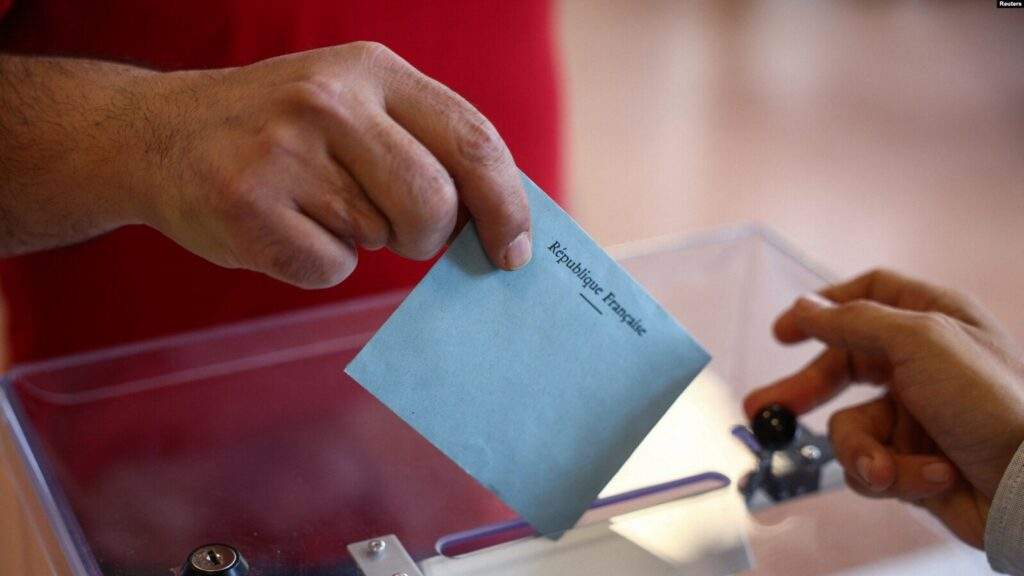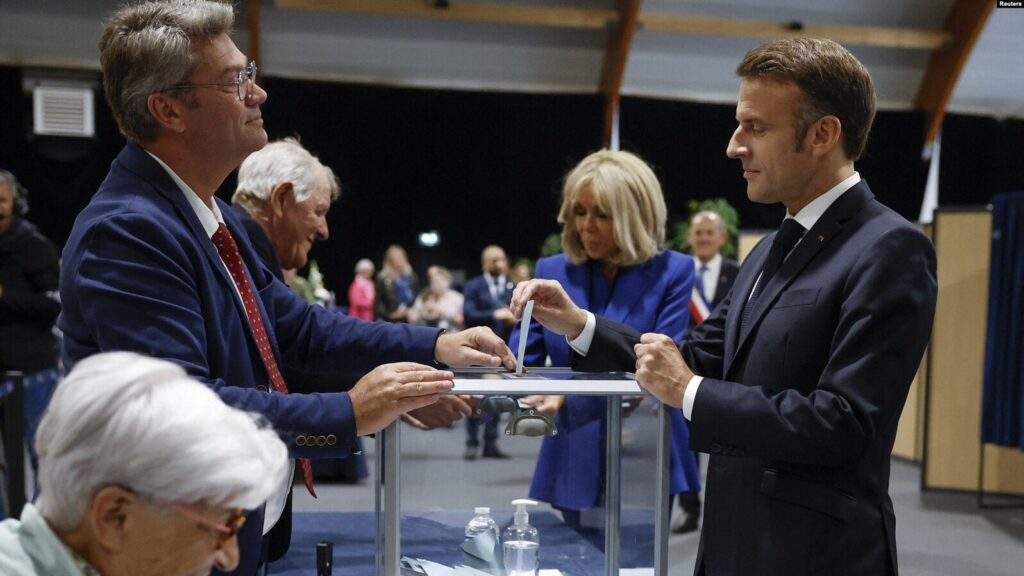PARIS — Voter turnout in France’s parliamentary run-off election on Sunday surged significantly compared to 2022, in a ballot that might see the far-right National Rally (RN) emerge as the dominant force.
Despite RN’s anticipated success in winning the most seats in the National Assembly, recent opinion polls suggest it may not achieve an absolute majority. Such an outcome could undermine President Emmanuel Macron’s authority, leading to potential instability and policy gridlock in the euro zone’s second-largest economy.
If the nationalist, Eurosceptic RN secures a majority, it would result in France’s first far-right government since World War II, sending shockwaves through the European Union amidst a rise in support for populist parties across the continent.
Turnout was reported at 26.3% by noon (1000 GMT), up from 18.99% during the second voting round in 2022, the interior ministry said. This marks the highest midday turnout since 1981, according to pollsters Harris Interactive and Ipsos.
Voting is scheduled to close at 6 p.m. (1600 GMT) in towns and small cities, and at 8 p.m. in larger cities, with initial projections expected shortly after.

Polarized Views and Rising Political Violence
“The country is facing three radically opposed views of society,” said Olivier Grisal, a retiree in Conflans Sainte-Honorine, west of Paris. “There’s the far right, Macronism, which has dictatorial tendencies, and the left, which also isn’t great,” he added.
Opinion polls forecast Marine Le Pen’s RN will become the dominant force in the National Assembly, reflecting voter frustration with Macron over the cost of living crisis. However, the RN is not expected to reach the 289-seat threshold necessary for a working majority, which would place Le Pen’s protégé, Jordan Bardella, in the prime minister’s role.
The RN’s projected victory margin has narrowed as Macron’s centrist Together alliance and the left-wing New Popular Front (NPF) pulled candidates from three-way races in the second round to consolidate the anti-RN vote.
“France is on the cliff-edge and we don’t know if we’re going to jump,” said Raphael Glucksmann, a member of the European Parliament, expressing concern over the political climate.
The short three-week campaign has seen a surge in political violence, with Interior Minister Gerald Darmanin reporting over 50 physical assaults on candidates and campaigners. In anticipation of potential unrest following a far-right victory, luxury boutiques on the Champs Elysees, including Louis Vuitton, have barricaded their windows. Darmanin announced the deployment of 30,000 police officers to maintain order.
A Potential Shift in France’s Political Landscape

The RN has expanded its support beyond its traditional bases, tapping into voter discontent over household budgets, security, and immigration. “French people have a real desire for change,” Le Pen told TF1 TV on Wednesday.
Macron’s decision to call the snap election after a setback in the European parliamentary vote has left his political agenda in jeopardy, three years before the end of his presidency. “Our country is going through a serious crisis, we are only a few hours away from a new order,” said Pascal Cuzange, an engineer who voted for Macron’s alliance more out of protest against the alternatives than support for the president.
An RN-led government would raise questions about France’s role in the EU and on the global stage, especially regarding its plans to crack down on immigration. The RN has pledged to reduce immigration, tighten family reunification rules, and lower the retirement age, although some economic policies have been moderated due to France’s budget deficit.
Bardella stated the RN would decline to form a government without a majority, while Le Pen hinted at attempting to govern if they fall just short. France’s political system is not accustomed to forming broad coalitions in the event of a hung parliament, and Prime Minister Gabriel Attal, among others, has ruled out such a scenario.
Economic and Social Concerns
France’s business elite is anxious about potential political instability. “We are very concerned about what’s going to happen,” said Ross McInnes, chairman of aerospace company Safran. “Whatever the political configuration that will come out of Sunday’s vote, we are probably at the end of a reform cycle that started ten years ago.”
French asset prices have risen on expectations that the RN won’t win a majority, with banking shares up and the risk premium on French debt narrowing. Economists, however, question the funding of the RN’s spending plans.
“France is sick, the economy is sick,” said pensioner Claude Lefloche, expressing dissatisfaction with the current state of affairs.



